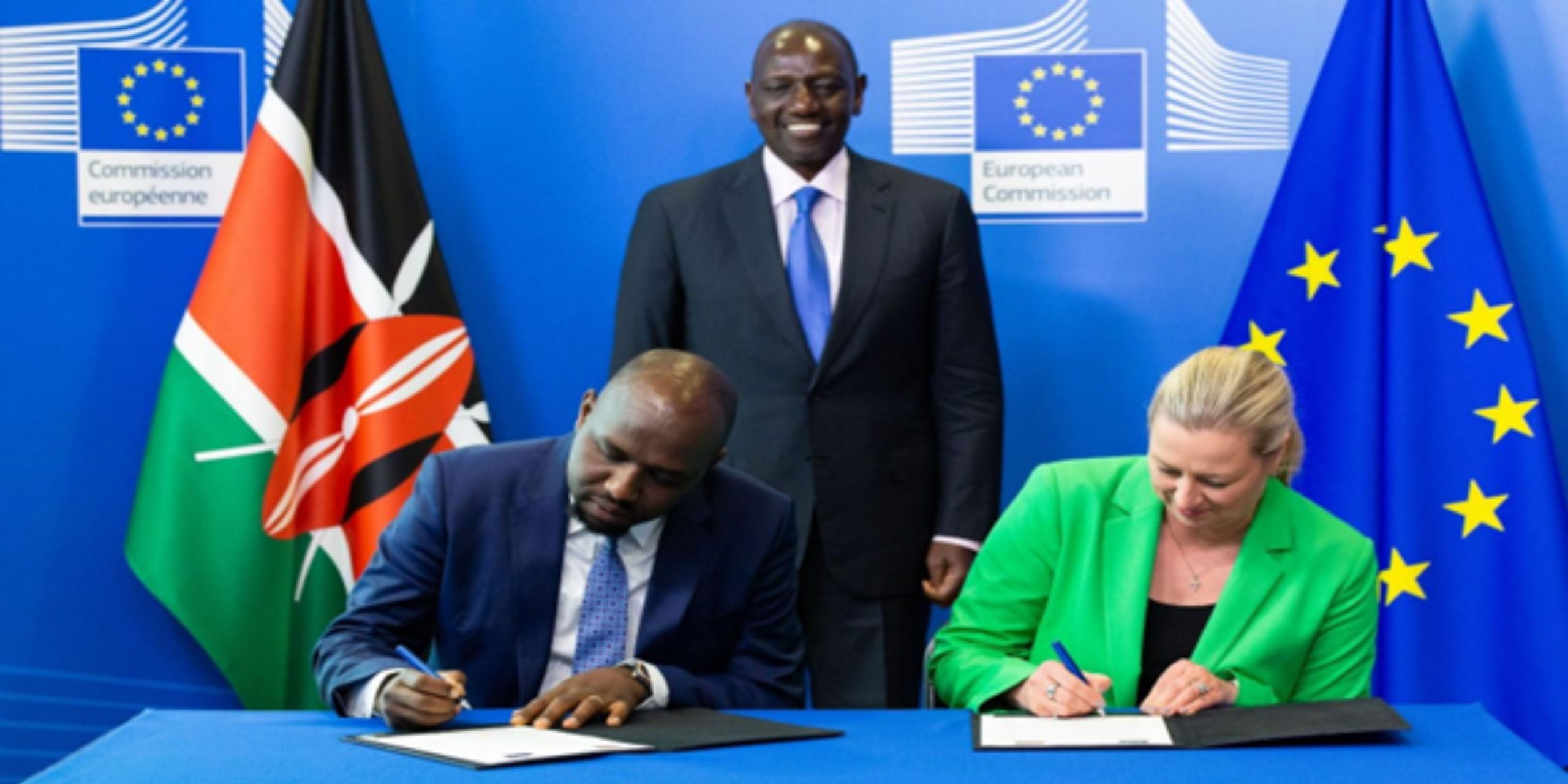President of the European Commission, Ursula von der Leyen, and Kenyan President William Ruto, met in Brussels to discuss how to strengthen the partnership between the EU and Kenya and opportunities to drive the green and digital transitions in Kenya under Global Gateway. As a concrete deliverable, on the sidelines of the meeting, Commissioner Jutta Urpilainen and Cabinet Secretary for Transport Cooperation Mr Kipchumba Murkomen signed a declaration of intention to finance the electric bus line “Nairobi Core Bus Rapid Transit Line 3” (BRT 3) for a total amount of €347.6 million, including €45 million in grants from the EU budget. By supporting the implementation of a safe, clean, high quality and efficient public transport system in Nairobi, Team Europe is the key partner in Kenya’s green transition.
The innovative BRT line 3 project is a key deliverable of the Mombasa-Kisangani strategic corridors, which is a priority in the Global Gateway Africa-Europe Investment Package. This line will be the first dedicated electric bus rapid lane in East Africa and is part of a system of five rapid bus lines to be developed in the Kenyan capital. The Bus Rapid Transit Line is fully designed by European expertise and funded by a consortium of Team Europe partners and has a strong focus on the highest social and environmental standards. The BRT Line 3 is expected to be operational in 2030.
The EU is providing €45 million in grants, while the European Investment Bank and the French Development Agency AFD jointly support the projects with €236.3 million. On behalf of the German Federal Ministry for Economic Cooperation and Development (BMZ) and the EU, the Deutsche Gesellschaft für Internationale Zusammenarbeit (GIZ) GmbH will also provide technical assistance to the project’s implementation. Similarly, the Kenyan Government is contributing on its side with €66.3 million.
Strong focus on sustainability
Promoting mass rapid transit will help cut commuting time, curb pollution, reduce traffic accidents and increase travelers’ safety. Buses will run on green renewable electricity produced in Kenya. The project will address affordable fare setting and inclusion of access to the public transport system for youth, women, low-income households and people living with disabilities.
The transformative electric BRT line 3 will transport up to 300 000 daily commuters through the most congested areas of Nairobi in an efficient and safe manner. There will be a bus every 3 minutes during peak hours.
Nairobi has grown exponentially, but yet its public transport has not grown at the same rate. Over the last 10 years, EU has worked with the Kenyan government by offering technical assistance to the Kenyan transport sector. One of the outcomes is the creation of the Nairobi Metropolitan Transport Authority (NaMATA), as a government body. NaMATA will be the institutional counterpart to run this BRT 3 operation with the EU. With the EU/Team Europe technical assistance, the Government initiated conversations with the matatu sector (the informal bus system) to embrace the implementation of Bus Rapid Transit (BRT) system.
This signature takes place a month after the first EU-Kenya Business Forum (21-22 February) and the EU-Kenya Strategic Dialogue (22 February), both held in Nairobi, where both sides confirmed the objective to strengthen the partnership between the EU and Kenya under Global Gateway, which is contributing to boost sustainable investments fully in line with the Sustainable Development Goals agenda.
Source: European Commission | News (https://bit.ly/3K3QPL4)
